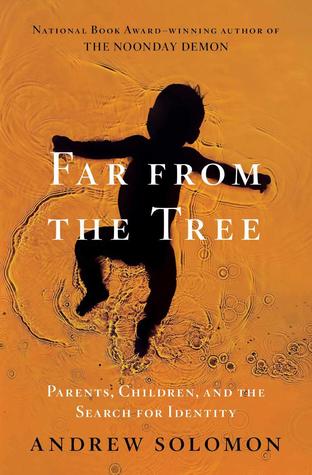More on this book
Community
Kindle Notes & Highlights
Read between
August 2 - August 16, 2020
Though many of us take pride in how different we are from our parents, we are endlessly sad at how different our children are from us.
While each of these experiences can isolate those who are affected, together they compose an aggregate of millions whose struggles connect them profoundly. The exceptional is ubiquitous; to be entirely typical is the rare and lonely state.
Vertical identities are usually respected as identities; horizontal ones are often treated as flaws.
Having exceptional children exaggerates parental tendencies; those who would be bad parents become awful parents, but those who would be good parents often become extraordinary.
Our family rule was to be interested in otherness from within a pact of sameness.
Treating an identity as an illness invites real illness to make a braver stand.
There is no contradiction between loving someone and feeling burdened by that person; indeed, love tends to magnify the burden. These parents need space for their ambivalence, whether they can allow it for themselves or not. For those who love, there should be no shame in being exhausted—even in imagining another life.
The wish to fix people reflects pessimism about their condition and optimism about the method of repair.
Recent academic work suggests that people who know their condition to be irreversible are happier than those who believe their condition may be ameliorated. In such cases, ironically, hope may be the cornerstone of misery.
Fixing is the illness model; acceptance is the identity model; which way any family goes reflects their assumptions and resources.
Tobin Siebers makes a moving case for horizontal solidarity by pointing out that our disdain for people who cannot care for themselves is rooted in a false proposition. He argues that inclusion of disabled people “exposes the widespread dependence of people and nations on one another, dispelling the dangerous myth that individuals or nations exist naturally in a state of autonomy and that those individuals or nations that fall into dependence are somehow inferior to others.”
The Deaf activist MJ Bienvenu said, “We do not want or need to become hearing in order to consider ourselves normal. For us, early intervention does not mean earphones, amplifiers, and training a child to appear as hearing as possible. Instead, a good early intervention program would offer deaf children and hearing parents early exposure to ASL and many opportunities to interact with signing Deaf people. We are a minority group with our own language, culture, and heritage.”
The Deaf culture feels that they have something: they have membership in a beautiful culture. Hearing parents are thrown back on their own dichotomy: do they have a deaf child, or do they lack a hearing one?
“I had a choice and I chose life,” Fairchild wrote. “Does that make me pro-choice or pro-life? Our political parties tell us we can’t have it both ways. I chose life, but I am thankful I had the choice.”
The facility containing the largest number of schizophrenics in the United States is the Los Angeles County Jail. At least three times as many mentally ill people are in jail as are in hospitals.
I think what I’ve finally come to terms with is that if you learn to live with things that aren’t pleasant, then, suddenly, sometimes, they are.”
“It is not a joyful thing, by any means, to have a special-needs child. But Max, himself, has given us a lot of joy. I had to change my ideas when he was born, about what it means to be successful, for him and for me; his happiness is his success for him, and mine for me.
I would propose that only by allowing people born with horizontal identities not to change does one allow them to get better. Any of us can be a better version of himself, but none of us can be someone else.
Yet if parents often end up grateful for their problematical children, then so, in the end, can we all be grateful for the courage such people may embody, the generosity they may teach us, even the ways they complicate the world.


